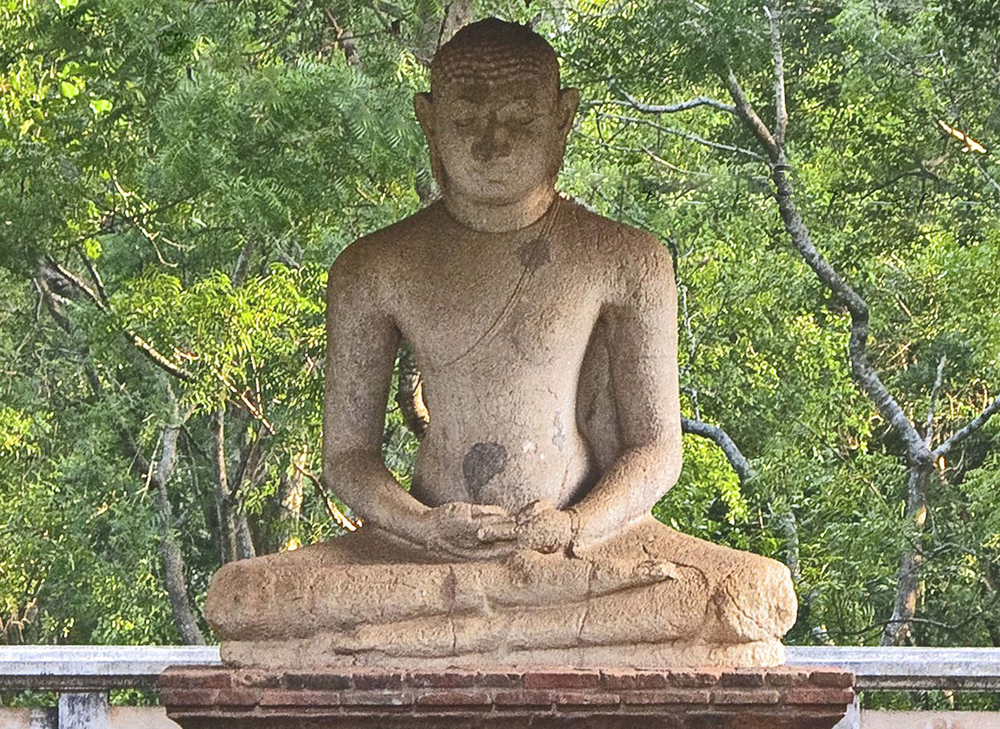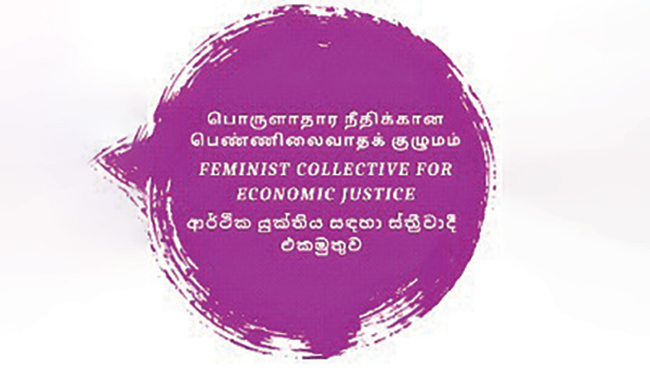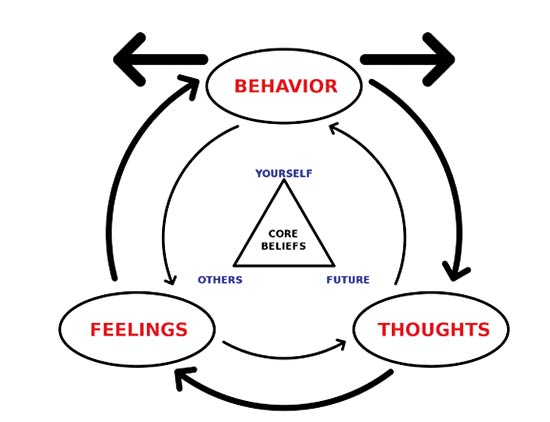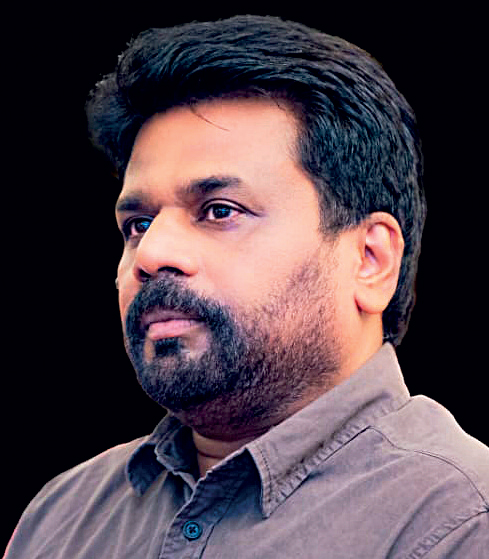Features
Clean Sri Lanka environmentally, socially and psychologically

Philosophical approach should integrate sociological and psychological principles as an essential part of the campaign
by Prof. Athula Sumathipala
Clean Sri Lanka; what does it entail?
The mission of the “Clean Sri Lanka” project” is to reposition the nationwide efforts of environmental, social, and governance initiatives through introducing change, integration, and collaboration”.
As stated on its official website, “Clean Sri Lanka project aims to address a cleaner physical environment and a nationwide moral commitment to enhance ethical principles. Enhancement of the three pillars of sustainability; Economic, Social and Governance (EESG), have been identified as the framework to address the overarching objectives of this strategic plan with specific stakeholder goals, actions, time lines and outcomes”.
Human nature of resistance to change
Human nature is such that they are resistant to change. That is why so many people especially as organiations, when presented with a new initiative or idea—even a good one, with tons of benefits—will resist it.
We have already witnessed such resistance, in relation to the clean Sri Lanka project; threat to strikes, misinformation campaigns etc. No surprise. That resistance can also be easily exploited by the opportunists who wants to derail this programme for their own gains, no matter what the overall benefits the proposed programme brings.
The role of “proactive change management”
Proactive change management happens when leaders actively seek to manage the challenges and opportunities in a program. Every change projects comes with many unpredictable aspects. A proactive change manager will anticipate such potential challenges and plan for such problems well in advance. Thereby, they will be equipped to create contingency plans for unexpected challenges.
The role of the brain in facing changes
The brain has three main parts: the cerebrum, cerebellum and brainstem. Cerebrum is the largest part of the brain and is composed of right and left hemispheres. They interpret sights, sounds and touches. It also regulates emotions, reasoning and learning.
Cerebellum maintains the balance, posture, coordination and fine motor skills.
Brainstem, regulates many automatic body functions.
Part of the brain, the amygdala interprets change as a threat and releases the hormones leading to fear, fight, or flight. (See Figure 1)
In particular, the function of the brain’s prefrontal cortex, which is responsible for complex thinking, self-regulation, and future orientation, is only completed around the age of 24.
Because the brain’s prefrontal cortex is still developing, teenagers rely more on a part of the brain called the amygdala to make decisions and solve problems than adults. The amygdala is involved in emotions, impulses, aggression, and instinctual behaviour.
The limbic system, often referred to as the emotional centre of the brain, is responsible for processing emotions, forming memories, and regulating behaviour. It includes key structures like the amygdala, hippocampus, and hypothalamus, each playing a vital role in emotional and social processing.
Therefore, biologically, we can conclude that the younger generation acts more emotionally than rationally compared to the adults. However, that does not mean all adults are acting rationally. Understanding this phenomenon is in no way justifying and normalising it.
Hence, adolescents and also adults should learn about emotional regulation and improve their skills to communicate their frustrations, anger, disagreements in an acceptable and civilised manner.
Such frustrations, anger, disagreements are potential manifestations of the Clean Sri Lanka programme which could be easily exploited by opportunists.
That’s why the science and the art of science should be carefully integrated into proactive change management using cognitive behavioural principles, conformity theory and principles, as they are key components in this, Clean Sri Lanka project for successful implementation.
Emotional regulation
Emotional regulation is the conscious or unconscious processes of monitoring, evaluating, modulating, and managing emotional experiences and expression of emotion in terms of intensity, form, and duration of feelings, emotion related physiological states and behaviours.
Being able to regulate emotions is important since our emotions are closely connected to how we think and behave. Our thoughts and feelings help us to decide how best to respond to a situation and what action we should take. Essentially, emotional regulation can influence positive and negative behaviour.
Learning skills to regulate emotions means that, instead of acting impulsively and doing something that may be regretted later, we are able to make thought-out choices. It also helps out to manage our conflicts of interest or competing interests.
This means that we can learn to manage relationships with others, solve problems, and have better control over our behaviours.
To do so, one need to develop emotional intelligence. Positive attitudes and emotional intelligence go hand in hand. That is why it’s so important.
Attitude is a way of thinking or feeling about something, it’s a psychological construct which governs behaviours. Negative or destructive attitudes are like flat tyers, without changing one cannot go anywhere.
Emotional intelligence (EI)
In a book written by Daniel Goleman in 1995, on emotional intelligence theory, he outlined five components of EI: self-awareness, self-regulation, motivation, empathy, and social skills.
Self-regulation; helps openness to change, motivation; helps a passion for work beyond monetary returns, energy and persistence, empathy; putting yourself in others’ shoes, social skills; ability to find common ground and rapport, and persuasiveness. People with EI makes good leaders as they can use their ability to recognise and understand their own emotions to make more informed and rational decisions. They can also use their ability to empathise with the emotions of their team members to take into account their perspectives and needs when making decisions
Emotional Intelligence can matter more than IQ; “intelligence quotient”. In his book, Goleman pointed out that emotional intelligence is as important as IQ for success, including in academic, professional, social, and interpersonal aspects of one’s life. It’s something which can be developed through coaching and mentoring.
Conformity principles
Conformity is a form of social influence that involves a change in the common belief or behaviour of a person or group of people to fit into how others are. This may have a good outcome or bad outcome.
Solomon Asch conducted several experiments in the 1950s to determine how people are affected by the thoughts and behaviours of other people. In one study, a group of participants was shown a series of printed line segments of different lengths: a, b, and c (Figure 1). Participants were then shown a fourth line segment: x. They were asked to identify which line segment from the first group (a, b, or c) most closely resembled the fourth line segment in length. (See Figure 2)
Each group of participants had only one true, outsider. The remaining members of the group were confederates of Ash. A confederate is a person who is aware of the experiment and works for the researcher. Confederates are used to manipulate social situations as part of the research design, and the true, outside participants believe that confederates are, like them, uninformed participants in the experiment. In Asch’s study, the confederates identified a line segment that was shorter than the target line a, the wrong answer. The outside participant then had to identify aloud the line segment that best matched the target line segment.
Asch (1955) found that 76% of participants conformed to group pressure at least once by indicating the incorrect line. Conformity is the change in a person’s behavior to go along with the group, even if he does not agree with the group.
Research shows that the size of the majority, the presence of another dissenter, and the public or relatively private nature of responses are key influences on conformity.
The size of the majority: The greater the number of people in the majority, the more likely an individual will conform. In Asch’s study, conformity increased with the number of people in the majority, up to seven individuals. At numbers beyond seven, conformity leveled off and decreased slightly. The presence of another dissenter: If there is at least one dissenter, conformity rates drop to near zero (Asch, 1955).
The correct answer to the line segment question was obvious, and it was an easy task. But the outsiders who participated in the study gave wrong answers. Researchers (Deutsch & Gerard, 1955) have categorized the motivation to conform into two types: normative social influence and informational social influence
In normative social influence, people conform to the group norm to fit in, feel good, and be accepted by the group. However, with informational social influence, people conform because they believe the group is competent and has the correct information, particularly when the task or situation is ambiguous.
So, what is happening in current society. The great majority of good people conform to the bad minority allowing the wrong thing to happen. Therefore, the very same conformity principles can be used by empowering the majority of good people not to conform to the bad or wrong minority.
To achieve that people should get out of the “learned helplessness” mode, which was described by Seligman in 1976. Learned helplessness is what social science researchers call it when a person is unable to find resolutions to difficult situations, even when a solution is accessible. People that struggle with learned helplessness tend to complain a lot, feeling overwhelmed and incapable of making any positive difference in their circumstances. The feel that they are powerless to change others who have conformed to the “norm”. They give up and just get one.
There is also the bystander effect, or bystander apathy. Social psychological theory states that individuals are less likely to offer help to a victim or initiate an action in the presence of other people. They simply assume that the other person will do it. If everybody expects the other person will do ultimately no one will do it.
Social psychology is the scientific study of how thoughts, feelings, and behaviors are influenced by the actual, imagined, or implied presence of others. Social psychologists explain human behavior as a result of the relationship between mental states and social situations, studying the social conditions under which thoughts, feelings, and behaviors occur, and how these variables influence social interactions.
The best way to describe what to do in the context of all the above phenomena are operating, is using Cognitive behavioural theory and interventions based on that. Cognitive-Behavioral Theory states that human thinking determines human behaviour and feeling. Therefore, by changing one you can change the other.
The triad; behaviors, thoughts and feelings
The basis of cognitive behavioral theory is that a person’s thoughts, ideas, and beliefs underpin their emotional reactions and behaviors. (See Figure 2)
As described in the above diagram we have assumptions and core beliefs about us, the others, the future, the country, the world and so on. We call it a schemata. We process information using these schemata. Some of these can be positive and useful (functional) and some are negative and counterproductive.
The easiest way to understand this is to learn about Kisa Gothami’s story. When Kisa Gothami’s newborn son died, she did not realize so and she ran to Lord Buddha asking him to cure her son. Lord Buddha at once knew that the baby was dead but wanted Kisa Gothami to learn about death herself. Lord Buddha asked her to find a handful of mustard seeds from a household where no one has died. She went knocking on all the doors in the village but could not find a single house without a death in the family. Soon she realized the lesson Lord Buddha was trying to teach her: that no family is spared the occurrence of death. Lord Buddha used a bahaviour to teach Kisa Gothami to change the way she thinks about death. We call it cognitive restructuring.
Compatibilities between cognitive approaches to therapy, such as CBT, and Buddhism have been acknowledged by its originators Aron Beck (2005) and Kwee & Ellis (1998).
Our nation needs mass scale cognitive behavioural interventions to change the way they think about many things; us, others, future, country, what is rights and wrongs, one’s responsibilities and duties. We need to change our learned helplessness mentality created through the so-called bankrupt society that has no future.
Without addressing these assumptions, core beliefs, and thinking errors; the schemata, by using scientific principle and interventions, to change the crucial behaviors and thinking neither the President nor 159 MPs alone will be able to do much for the nation who expect a paradigm shift in the development of a nation. Their duty was not finished by voting a new President and a Government into power with the 2/3rd majority.
Each citizen who is seriously thinking of a prosperous nation need to change first to change the country and it;s wrong doings. If you want the Government to stop bribery and corruption you need to first stop offering bribes. Reflect on your self first and also inculcate such attitudes in the younger generations with optimism.
Role of media in behavioural change
The media has an undisputed role in influencing behavioral change by shaping public opinion, disseminating information, and creating awareness.
Raising awareness through campaigns can promote positive behaviors, changing stereotypes, bringing progressive narratives. modeling behaviors in films or on social media, can inspire individuals to adopt similar behaviors.
Creating social pressure through peer Influence challenging conformity, learned helplessness, conducting campaigns on social media encouraging widespread behavioral change, educating and empowering, supporting and influencing public policy and reinforcing positive behaviors are a few.
However, be mindful that media is a double-edged sword, it can inspire positive change when used responsibly but can also perpetuate negative behaviors if misused. Its influence on behavior depends largely on the accuracy, ethics, and creativity of the content it disseminates.
Be mindful, for the first time in history, the essential and fundamental conditions; objective and subjective, have come together offering a golden opportunity for a genuine change. The political leadership should not leave any stone unturned to use the scientific advances of science relevant to
three fundamental components: biological, psychological, and sociocultural factors. These elements are not isolated; they interact dynamically to shape the way we perceive the world and respond to it. They should understand how these foundational aspects of behavior provide a framework for understanding the complex nature of human actions and how to change them.
The author of this article is an internationally renowned academic with a strong track record in research especially carried out in Sri Lanka using cognitive behavioural principles. Some of his interventions are considered front line in post disaster situations.
He is an Emeritus Professor at Kings College London and Keele University. He is also the Director, Institute for Research and Development in Health and Social care and the Chairman of the National Institute of Fundamental Studies.
He had been an invited plenary speaker at the 11th International Congress on Behavioural Medicine, Washington DC, USA (August 2010), 19th World Psychiatric Association (WPA), World Congress of Psychiatry, Portugal, Lisbon (August, 2019). Melbourne, Australia (February, 2018). 16th Congress of the International Federation of Psychiatric Epidemiology Melbourne, Australia (Oct, 2017), Royal Australian and New Zealand College of Psychiatrists (RANZAP) Napier, New Zealand (Oct 2007), to name a few related to cognitive behavioral theory/therapy.
Features
Reconciliation, Mood of the Nation and the NPP Government

From the time the search for reconciliation began after the end of the war in 2009 and before the NPP’s victories at the presidential election and the parliamentary election in 2024, there have been four presidents and four governments who variously engaged with the task of reconciliation. From last to first, they were Ranil Wickremesinghe, Gotabaya Rajapaksa, Maithripala Sirisena and Mahinda Rajapaksa. They had nothing in common between them except they were all different from President Anura Kumara Dissanayake and his approach to reconciliation.
The four former presidents approached the problem in the top-down direction, whereas AKD is championing the building-up approach – starting from the grassroots and spreading the message and the marches more laterally across communities. Mahinda Rajapaksa had his ‘agents’ among the Tamils and other minorities. Gotabaya Rajapaksa was the dummy agent for busybodies among the Sinhalese. Maithripala Sirisena and Ranil Wickremesinghe operated through the so called accredited representatives of the Tamils, the Muslims and the Malaiayaka (Indian) Tamils. But their operations did nothing for the strengthening of institutions at the provincial and the local levels. No did they bother about reaching out to the people.
As I recounted last week, the first and the only Northern Provincial Council election was held during the Mahinda Rajapaksa presidency. That nothing worthwhile came out of that Council was not mainly the fault of Mahinda Rajapaksa. His successors, Maithripala Sirisena and Ranil Wickremesinghe as Prime Minister, with the TNA acceding as a partner of their government, cancelled not only the NPC but also all PC elections and indefinitely suspended the functioning of the country’s nine elected provincial councils. Now there are no elected councils, only colonial-style governors and their secretaries.
Hold PC Elections Now
And the PC election can, like so many other inherited rotten cans, is before the NPP government. Is the NPP government going to play footsie with these elections or call them and be done with it? That is the question. Here are the cons and pros as I see them.
By delaying or postponing the PC elections President AKD and the NPP government are setting themselves up to be justifiably seen as following the cynical playbook of the former interim President Ranil Wickremesinghe. What is the point, it will be asked, in subjecting Ranil Wickremesinghe to police harassment over travel expenses while following his playbook in postponing elections?
Come to think of it, no VVIP anywhere can now whine of unfair police arrest after what happened to the disgraced former prince Andrew Mountbatten Windsor in England on Thursday. Good for the land where habeas corpus and due process were born. The King did not know what was happening to his kid brother, and he was wise enough to pronounce that “the law must take its course.” There is no course for the law in Trump’s America where Epstein spun his webs around rich and famous men and helpless teenage girls. Only cover up. Thanks to his Supreme Court, Trump can claim covering up to be a core function of his presidency, and therefore absolutely immune from prosecution. That is by the way.
Back to Sri Lanka, meddling with elections timing and process was the method of operations of previous governments. The NPP is supposed to change from the old ways and project a new way towards a Clean Sri Lanka built on social and ethical pillars. How does postponing elections square with the project of Clean Sri Lanka? That is the question that the government must be asking itself. The decision to hold PC elections should not be influenced by whether India is not asking for it or if Canada is requesting it.
Apart from it is the right thing do, it is also politically the smart thing to do.
The pros are aplenty for holding PC elections as soon it is practically possible for the Election Commission to hold them. Parliament can and must act to fill any legal loophole. The NPP’s political mojo is in the hustle and bustle of campaigning rather than in the sedentary business of governing. An election campaign will motivate the government to re-energize itself and reconnect with the people to regain momentum for the remainder of its term.
While it will not be possible to repeat the landslide miracle of the 2024 parliamentary election, the government can certainly hope and strive to either maintain or improve on its performance in the local government elections. The government is in a better position to test its chances now, before reaching the halfway mark of its first term in office than where it might be once past that mark.
The NPP can and must draw electoral confidence from the latest (February 2026) results of the Mood of the Nation poll conducted by Verité Research. The government should rate its chances higher than what any and all of the opposition parties would do with theirs. The Mood of the Nation is very positive not only for the NPP government but also about the way the people are thinking about the state of the country and its economy. The government’s approval rating is impressively high at 65% – up from 62% in February 2025 and way up from the lowly 24% that people thought of the Ranil-Rajapaksa government in July 2024. People’s mood is also encouragingly positive about the State of the Economy (57%, up from 35% and 28%); Economic Outlook (64%, up from 55% and 30%); the level of Satisfaction with the direction of the country( 59%, up from 46% and 17%).
These are positively encouraging numbers. Anyone familiar with North America will know that the general level of satisfaction has been abysmally low since the Iraq war and the great economic recession. The sour mood that invariably led to the election of Trump. Now the mood is sourer because of Trump and people in ever increasing numbers are looking for the light at the end of the Trump tunnel. As for Sri Lanka, the country has just come out of the 20-year long Rajapaksa-Ranil tunnel. The NPP represents the post Rajapaksa-Ranil era, and the people seem to be feeling damn good about it.
Of course, the pundits have pooh-poohed the opinion poll results. What else would you expect? You can imagine which twisted way the editorial keypads would have been pounded if the government’s approval rating had come under 50%, even 49.5%. There may have even been calls for the government to step down and get out. But the government has its approval rating at 65% – a level any government anywhere in the Trump-twisted world would be happy to exchange without tariffs. The political mood of the people is not unpalpable. Skeptical pundits and elites will have to only ask their drivers, gardeners and their retinue of domestics as to what they think of AKD, Sajith or Namal. Or they can ride a bus or take the train and check out the mood of fellow passengers. They will find Verité’s numbers are not at all far-fetched.
Confab Threats
The government’s plausible popularity and the opposition’s obvious weaknesses should be good enough reason for the government to have the PC elections sooner than later. A new election campaign will also provide the opportunity not only for the government but also for the opposition parties to push back on the looming threat of bad old communalism making a comeback. As reported last week, a “massive Sangha confab” is to be held at 2:00 PM on Friday, February 20th, at the All Ceylon Buddhist Congress Headquarters in Colombo, purportedly “to address alleged injustices among monks.”
According to a warning quote attributed to one of the organizers, Dambara Amila Thero, “never in the history of Sri Lanka has there been a government—elected by our own votes and the votes of the people—that has targeted and launched such systematic attacks against the entire Sasana as this one.” That is quite a mouthful and worthier practitioners of Buddhism have already criticized this unconvincing claim and its being the premise for a gathering of spuriously disaffected monks. It is not difficult to see the political impetus behind this confab.
The impetus obviously comes from washed up politicians who have tried every slogan from – L-board-economists, to constitutional dictatorship, to save-our children from sex-education fear mongering – to attack the NPP government and its credibility. They have not been able to stick any of that mud on the government. So, the old bandicoots are now trying to bring back the even older bogey of communalism on the pretext that the NPP government has somewhere, somehow, “targeted and launched such systematic attacks against the entire Sasana …”
By using a new election campaign to take on this threat, the government can turn the campaign into a positively educational outreach. That would be consistent with the President’s and the government’s commitment to “rebuild Sri Lanka” on the strength of national unity without allowing “division, racism, or extremism” to undermine unity. A potential election campaign that takes on the confab of extremists will also provide a forum and an opportunity for the opposition parties to let their positions known. There will of course be supporters of the confab monks, but hopefully they will be underwhelming and not overwhelming.
For all their shortcomings, Sajith Premadasa and Namal Rajapaksa belong to the same younger generation as Anura Kumara Dissanayake and they are unlikely to follow the footsteps of their fathers and fan the flames of communalism and extremism all over again. Campaigning against extremism need not and should not take the form of disparaging and deriding those who might be harbouring extremist views. Instead, the fight against extremism should be inclusive and not exclusive, should be positively educational and appeal to the broadest cross-section of people. That is the only sustainable way to fight extremism and weaken its impacts.
Provincial Councils and Reconciliation
In the framework of grand hopes and simple steps of reconciliation, provincial councils fall somewhere in between. They are part of the grand structure of the constitution but they are also usable instruments for achieving simple and practical goals. Obviously, the Northern Provincial Council assumes special significance in undertaking tasks associated with reconciliation. It is the only jurisdiction in the country where the Sri Lankan Tamils are able to mind their own business through their own representatives. All within an indivisibly united island country.
But people in the north will not be able to do anything unless there is a provincial council election and a newly elected council is established. If the NPP were to win a majority of seats in the next Northern Provincial Council that would be a historic achievement and a validation of its approach to national reconciliation. On the other hand, if the NPP fails to win a majority in the north, it will have the opportunity to demonstrate that it has the maturity to positively collaborate from the centre with a different provincial government in the north.
The Eastern Province is now home to all three ethnic groups and almost in equal proportions. Managing the Eastern Province will an experiential microcosm for managing the rest of the country. The NPP will have the opportunity to prove its mettle here – either as a governing party or as a responsible opposition party. The Central Province and the Badulla District in the Uva Province are where Malaiyaka Tamils have been able to reconstitute their citizenship credentials and exercise their voting rights with some meaningful consequence. For decades, the Malaiyaka Tamils were without voting rights. Now they can vote but there is no Council to vote for in the only province and district they predominantly leave. Is that fair?
In all the other six provinces, with the exception of the Greater Colombo Area in the Western Province and pockets of Muslim concentrations in the South, the Sinhalese predominate, and national politics is seamless with provincial politics. The overlap often leads to questions about the duplication in the PC system. Political duplication between national and provincial party organizations is real but can be avoided. But what is more important to avoid is the functional duplication between the central government in Colombo and the provincial councils. The NPP governments needs to develop a different a toolbox for dealing with the six provincial councils.
Indeed, each province regardless of the ethnic composition, has its own unique characteristics. They have long been ignored and smothered by the central bureaucracy. The provincial council system provides the framework for fostering the unique local characteristics and synthesizing them for national development. There is another dimension that could be of special relevance to the purpose of reconciliation.
And that is in the fostering of institutional partnerships and people to-people contacts between those in the North and East and those in the other Provinces. Linkages could be between schools, and between people in specific activities – such as farming, fishing and factory work. Such connections could be materialized through periodical visits, sharing of occupational challenges and experiences, and sports tournaments and ‘educational modules’ between schools. These interactions could become two-way secular pilgrimages supplementing the age old religious pilgrimages.
Historically, as Benedict Anderson discovered, secular pilgrimages have been an important part of nation building in many societies across the world. Read nation building as reconciliation in Sri Lanka. The NPP government with its grassroots prowess is well positioned to facilitate impactful secular pilgrimages. But for all that, there must be provincial councils elections first.
by Rajan Philips
Features
Barking up the wrong tree

The idiom “Barking up the wrong tree” means pursuing a mistaken line of thought, accusing the wrong person, or looking for solutions in the wrong place. It refers to hounds barking at a tree that their prey has already escaped from. This aptly describes the current misplaced blame for young people’s declining interest in religion, especially Buddhism.
It is a global phenomenon that young people are increasingly disengaged from organized religion, but this shift does not equate to total abandonment, many Gen Z and Millennials opt for individual, non-institutional spirituality over traditional structures. However, the circumstances surrounding Buddhism in Sri Lanka is an oddity compared to what goes on with religions in other countries. For example, the interest in Buddha Dhamma in the Western countries is growing, especially among the educated young. The outpouring of emotions along the 3,700 Km Peace March done by 16 Buddhist monks in USA is only one example.
There are good reasons for Gen Z and Millennials in Sri Lanka to be disinterested in Buddhism, but it is not an easy task for Baby Boomer or Baby Bust generations, those born before 1980, to grasp these bitter truths that cast doubt on tradition. The two most important reasons are: a) Sri Lankan Buddhism has drifted away from what the Buddha taught, and b) The Gen Z and Millennials tend to be more informed and better rational thinkers compared to older generations.
This is truly a tragic situation: what the Buddha taught is an advanced view of reality that is supremely suited for rational analyses, but historical circumstances have deprived the younger generations over centuries from knowing that truth. Those who are concerned about the future of Buddhism must endeavor to understand how we got here and take measures to bridge that information gap instead of trying to find fault with others. Both laity and clergy are victims of historical circumstances; but they have the power to shape the future.
First, it pays to understand how what the Buddha taught, or Dhamma, transformed into 13 plus schools of Buddhism found today. Based on eternal truths he discovered, the Buddha initiated a profound ethical and intellectual movement that fundamentally challenged the established religious, intellectual, and social structures of sixth-century BCE India. His movement represented a shift away from ritualistic, dogmatic, and hierarchical systems (Brahmanism) toward an empirical, self-reliant path focused on ethics, compassion, and liberation from suffering. When Buddhism spread to other countries, it transformed into different forms by absorbing and adopting the beliefs, rituals, and customs indigenous to such land; Buddha did not teach different truths, he taught one truth.
Sri Lankan Buddhism is not any different. There was resistance to the Buddha’s movement from Brahmins during his lifetime, but it intensified after his passing, which was responsible in part for the disappearance of Buddhism from its birthplace. Brahminism existed in Sri Lanka before the arrival of Buddhism, and the transformation of Buddhism under Brahminic influences is undeniable and it continues to date.
This transformation was additionally enabled by the significant challenges encountered by Buddhism during the seventeenth and eighteenth centuries (Wachissara 1961, Mirando 1985). It is sad and difficult to accept, but Buddhism nearly disappeared from the land that committed the Teaching into writing for the first time. During these tough times, with no senior monks to perform ‘upasampada,’ quasi monks who had not been admitted to the order – Ganninanses, maintained the temples. Lacking any understanding of the doctrinal aspects of Buddha’s teaching, they started performing various rituals that Buddha himself rejected (Rahula 1956, Marasinghe 1974, Gombrich 1988, 1997, Obeyesekere 2018).
The agrarian population had no way of knowing or understanding the teachings of the Buddha to realize the difference. They wanted an easy path to salvation, some power to help overcome an illness, protect crops from pests or elements; as a result, the rituals including praying and giving offerings to various deities and spirits, a Brahminic practice that Buddha rejected in no uncertain terms, became established as part of Buddhism.
This incorporation of Brahminic practices was further strengthened by the ascent of Nayakkar princes to the throne of Kandy (1739–1815) who came from the Madurai Nayak dynasty in South India. Even though they converted to Buddhism, they did not have any understanding of the Teaching; they were educated and groomed by Brahminic gurus who opposed Buddhism. However, they had no trouble promoting the beliefs and rituals that were of Brahminic origin and supporting the institution that performed them. By the time British took over, nobody had any doubts that the beliefs, myths, and rituals of the Sinhala people were genuine aspects of Buddha’s teaching. The result is that today, Sri Lankan Buddhists dare doubt the status quo.
The inclusion of Buddhist literary work as historical facts in public education during the late nineteenth century Buddhist revival did not help either. Officially compelling generations of students to believe poetic embellishments as facts gave the impression that Buddhism is a ritualistic practice based on beliefs.
This did not create any conflict in the minds of 19th agrarian society; to them, having any doubts about the tradition was an unthinkable, unforgiving act. However, modernization of society, increased access to information, and promotion of rational thinking changed things. Younger generations have begun to see the futility of current practices and distance themselves from the traditional institution. In fact, they may have never heard of it, but they are following Buddha’s advice to Kalamas, instinctively. They cannot be blamed, instead, their rational thinking must be appreciated and promoted. It is the way the Buddha’s teaching, the eternal truth, is taught and practiced that needs adjustment.
The truths that Buddha discovered are eternal, but they have been interpreted in different ways over two and a half millennia to suit the prevailing status of the society. In this age, when science is considered the standard, the truth must be viewed from that angle. There is nothing wrong or to be afraid of about it for what the Buddha taught is not only highly scientific, but it is also ahead of science in dealing with human mind. It is time to think out of the box, instead of regurgitating exegesis meant for a bygone era.
For example, the Buddhist model of human cognition presented in the formula of Five Aggregates (pancakkhanda) provides solutions to the puzzles that modern neuroscience and philosophers are grappling with. It must be recognized that this formula deals with the way in which human mind gathers and analyzes information, which is the foundation of AI revolution. If the Gen Z and Millennial were introduced to these empirical aspects of Dhamma, they would develop a genuine interest in it. They thrive in that environment. Furthermore, knowing Buddha’s teaching this way has other benefits; they would find solutions to many problems they face today.
Buddha’s teaching is a way to understand nature and the humans place in it. One who understands this can lead a happy and prosperous life. As the Dhammapada verse number 160 states – “One, indeed, is one’s own refuge. Who else could be one’s own refuge?” – such a person does not depend on praying or offering to idols or unknown higher powers for salvation, the Brahminic practice. Therefore, it is time that all involved, clergy and laity, look inwards, and have the crucial discussion on how to educate the next generation if they wish to avoid Sri Lankan Buddhism suffer the same fate it did in India.
by Geewananda Gunawardana, Ph.D.
Features
Why does the state threaten Its people with yet another anti-terror law?

The Feminist Collective for Economic Justice (FCEJ) is outraged at the scheme of law proposed by the government titled “Protection of the State from Terrorism Act” (PSTA). The draft law seeks to replace the existing repressive provisions of the Prevention of Terrorism Act 1979 (PTA) with another law of extraordinary powers. We oppose the PSTA for the reason that we stand against repressive laws, normalization of extraordinary executive power and continued militarization. Ruling by fear destroys our societies. It drives inequality, marginalization and corruption.
Our analysis of the draft PSTA is that it is worse than the PTA. It fails to justify why it is necessary in today’s context. The PSTA continues the broad and vague definition of acts of terrorism. It also dangerously expands as threatening activities of ‘encouragement’, ‘publication’ and ‘training’. The draft law proposes broad powers of arrest for the police, introduces powers of arrest to the armed forces and coast guards, and continues to recognize administrative detention. Extremely disappointing is the unjustifiable empowering of the President to make curfew order and to proscribe organizations for indefinite periods of time, the power of the Secretary to the Ministry of Defence to declare prohibited places and police officers in the rank of Deputy Inspector Generals are given the power to secure restriction orders affecting movement of citizens. The draft also introduces, knowing full well the context of laws delays, the legal perversion of empowering the Attorney General to suspend prosecution for 20 years on the condition that a suspect agrees to a form of punishment such as public apology, payment of compensation, community service, and rehabilitation. Sri Lanka does not need a law normalizing extraordinary power.
We take this moment to remind our country of the devastation caused to minoritized populations under laws such as the PTA and the continued militarization, surveillance and oppression aided by rapidly growing security legislation. There is very limited space for recovery and reconciliation post war and also barely space for low income working people to aspire to physical, emotional and financial security. The threat posed by even proposing such an oppressive law as the PSTA is an affront to feminist conceptions of human security. Security must be recognized at an individual and community level to have any meaning.
The urgent human security needs in Sri Lanka are undeniable – over 50% of households in the country are in debt, a quarter of the population are living in poverty, over 30% of households experience moderate/severe food insecurity issues, the police receive over 100,000 complaints of domestic violence each year. We are experiencing deepening inequality, growing poverty, assaults on the education and health systems of the country, tightening of the noose of austerity, the continued failure to breathe confidence and trust towards reconciliation, recovery, restitution post war, and a failure to recognize and respond to structural discrimination based on gender, race and class, religion. State security cannot be conceived or discussed without people first being safe, secure, and can hope for paths towards developing their lives without threat, violence and discrimination. One year into power and there has been no significant legislative or policy moves on addressing austerity, rolling back of repressive laws, addressing domestic and other forms of violence against women, violence associated with household debt, equality in the family, equality of representation at all levels, and the continued discrimination of the Malaiyah people.
The draft PSTA tells us that no lessons have been learnt. It tells us that this government intends to continue state tools of repression and maintain militarization. It is hard to lose hope within just a year of a new government coming into power with a significant mandate from the people to change the system, and yet we are here. For women, young people, children and working class citizens in this country everyday is a struggle, everyday is a minefield of threats and discrimination. We do not need another threat in the form of the PSTA. Withdraw the PSTA now!
The Feminist Collective for Economic Justice is a collective of feminist economists, scholars, feminist activists, university students and lawyers that came together in April 2022 to understand, analyze and give voice to policy recommendations based on lived realities in the current economic crisis in Sri Lanka.
Please send your comments to – feministcollectiveforjustice@gmail.com
-

 Business7 days ago
Business7 days agoMinistry of Brands to launch Sri Lanka’s first off-price retail destination
-

 Features12 hours ago
Features12 hours agoWhy does the state threaten Its people with yet another anti-terror law?
-

 Latest News2 days ago
Latest News2 days agoNew Zealand meet familiar opponents Pakistan at spin-friendly Premadasa
-

 Latest News2 days ago
Latest News2 days agoTariffs ruling is major blow to Trump’s second-term agenda
-

 Latest News2 days ago
Latest News2 days agoECB push back at Pakistan ‘shadow-ban’ reports ahead of Hundred auction
-

 Features7 days ago
Features7 days agoGiants in our backyard: Why Sri Lanka’s Blue Whales matter to the world
-

 Sports3 days ago
Sports3 days agoOld and new at the SSC, just like Pakistan
-

 Features12 hours ago
Features12 hours agoVictor Melder turns 90: Railwayman and bibliophile extraordinary

















